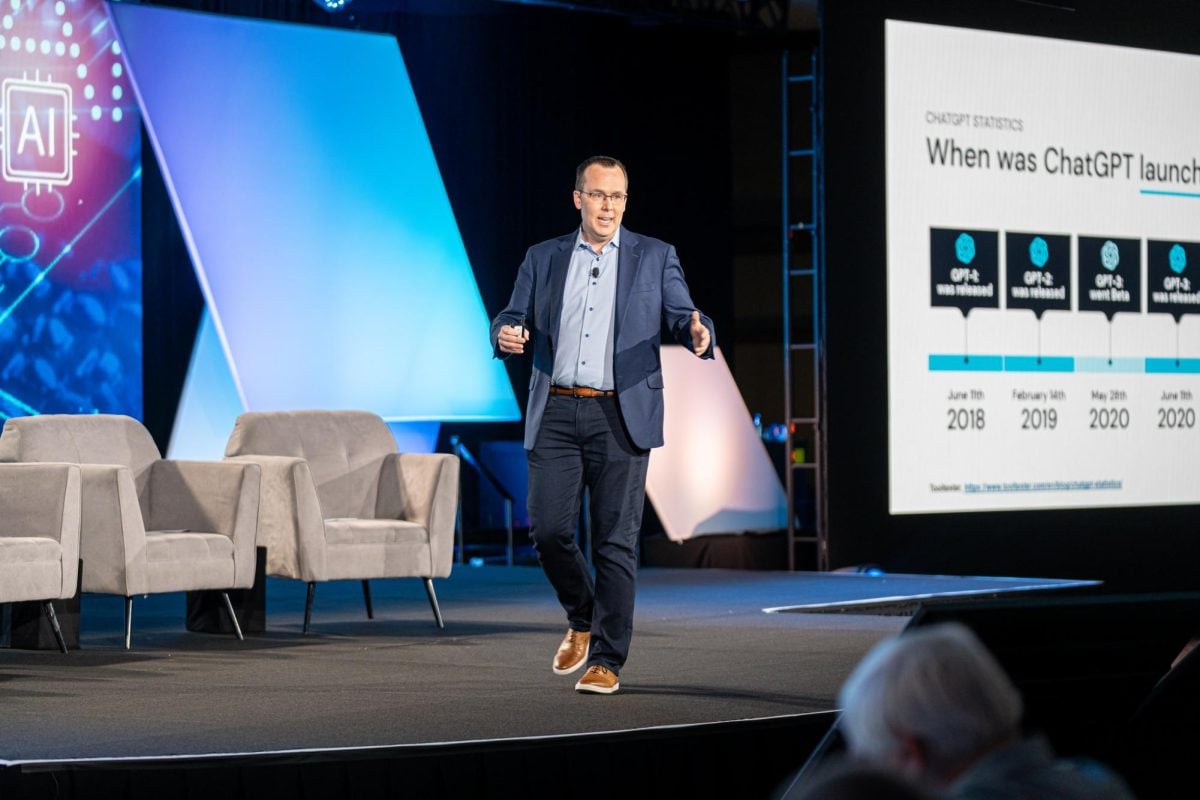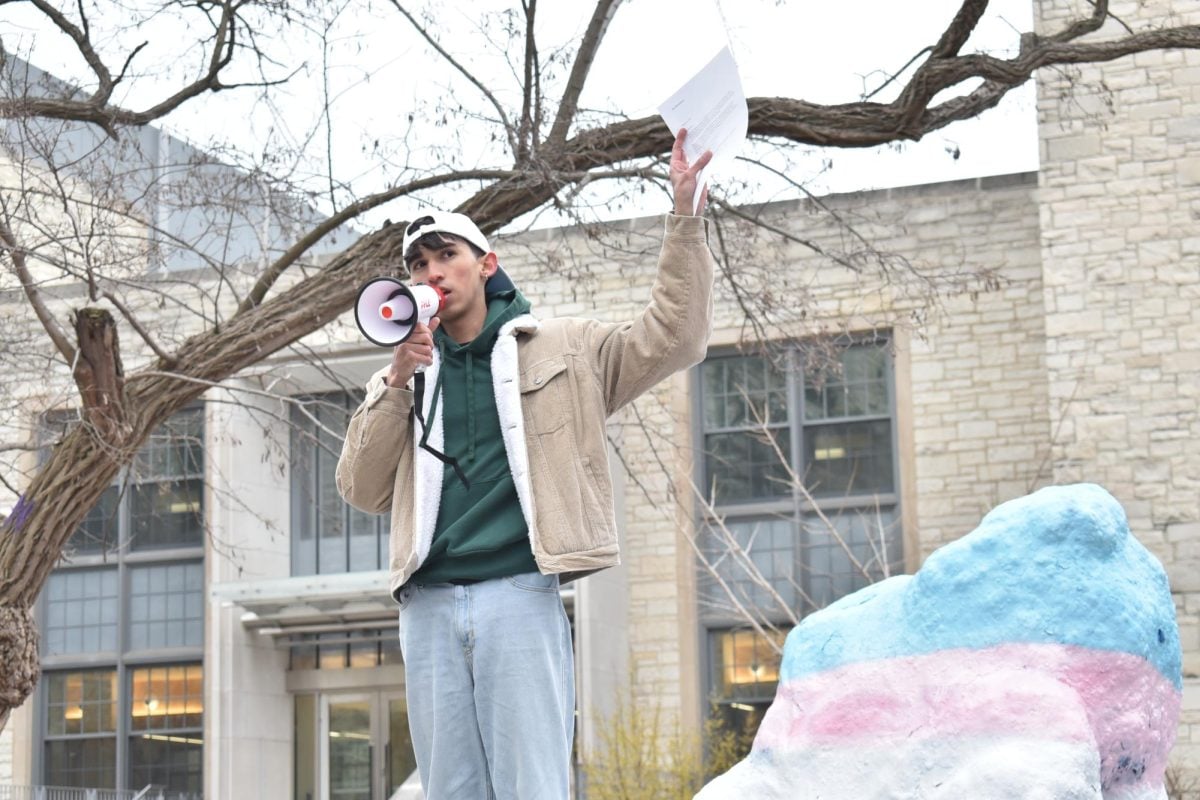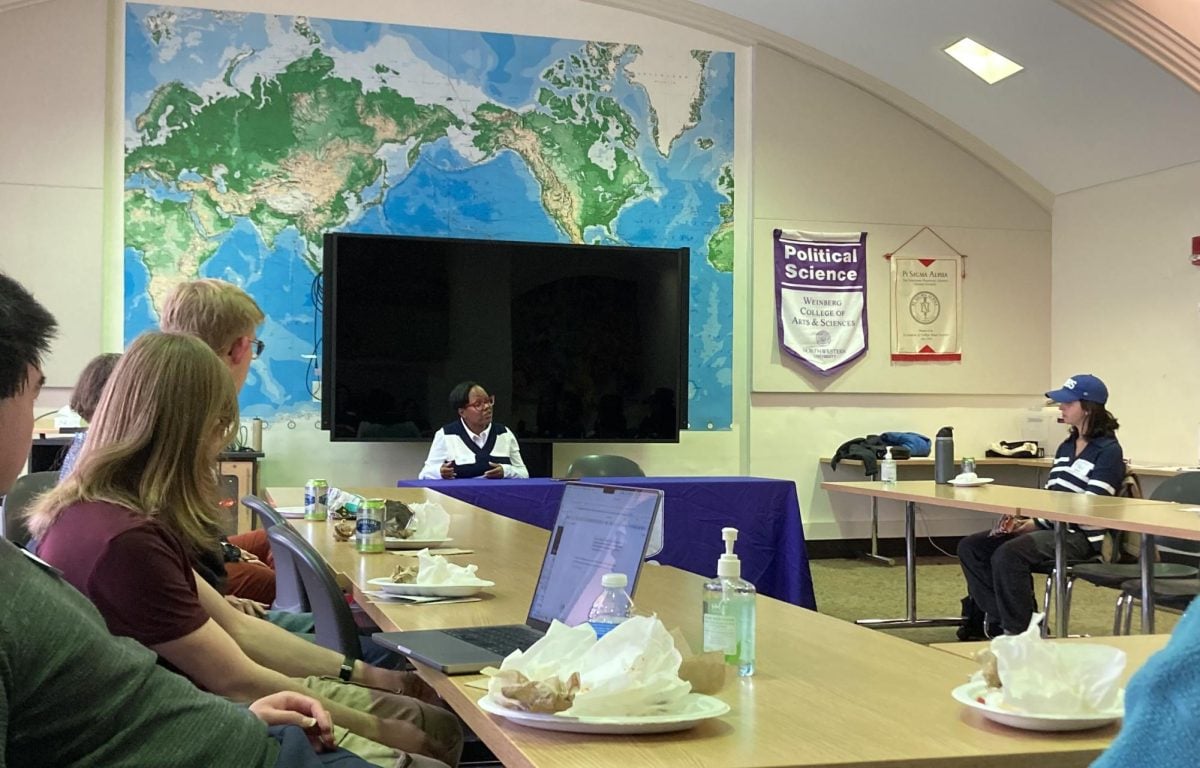The Sexualities Project at Northwestern kicked off its 2024 workshop “Masculinities: Hazing, Homosociality & the Construction of Sexuality” on Thursday with a keynote address by Brown University Prof. Matthew Gutmann.
About 50 students and scholars from several universities attended the keynote address, “The Fallaciously Primordial Male: Desires, Norms & Links,” which was followed by an open discussion and a catered reception.
During the talk, Gutmann identified and analyzed four terms that have complex meanings and uses within masculinity studies and society at large: masculinity, testosterone, heteronormativity and binaries.
“While I criticize some of our use of the terms and try to point to other ways or to think about the terms, I don’t for a minute negate the ethnographic salience of the terms,” Gutmann said. “They’re in use, and we need to understand how they’re used, by whom and in what contexts.”
Gutmann said “masculinity is too commonly viewed as something inherent” and added that this has broader implications for policies like conscription.
In addition, Gutmann noted that attendees had to consider what it means for men to live in a “militarized society,” with distinction to instances of increased suicide risk for men and the prevalence of violence in mass shootings.
One of Gutmann’s biggest critiques during the address was the use of “toxic masculinity” to describe behavior in males.
“I think (toxic masculinity) often reduces things to ‘this is sort of the default position for men, they’re born toxic, and we have to beat it out of them,’” Gutmann said. “It naturalizes a certain kind of attitude.”
He said the emphasis needs to be on changing behavior, not controlling it.
Sociology and Gender and Sexuality Studies Prof. Héctor Carrillo, co-director of SPAN, said the workshop aims to develop participants’ understanding of the links between masculinity and sexuality, and how this applies beyond cisgender men.
SPAN is an interdisciplinary initiative within NU’s Gender and Sexuality Studies program focused on research and education surrounding sexuality, sexual orientation and the social context of health. According to Carrillo, SPAN organizes scholarly events, holds yearly reading groups and funds NU faculty and graduate research.
“A central focus of the workshop is how and why homosociality is linked to particular interactions that often involve sexualized forms of abuse and humiliation,” Carrillo said. “(These actions) are often justified as contributing to a sense of group cohesion and belonging — being one of the team.”
University of Pittsburgh Prof. Scott Kiesling, who will speak at the workshop Friday, said he agreed with Gutmann’s perspective on “fill-in-the-blank masculinities.”
Gutmann said “fill-in-the-blank masculinities” are adjectives like “toxic,” “hyper” and “gentlemanly.” These adjectives are commonly used to modify the term masculinity but are rarely used to modify femininity, according to Gutmann.
“Whenever you see an asymmetry, like lots of modifiers, you want to think about why there’s an asymmetry there and whether that’s actually doing anything for (researchers),” Kiesling said.
After the address, Gutmann fielded questions from the audience about biological sex and its perception in both language and culture.
Gutmann said anatomy is not destiny, but it still has an impact.
“Language fuzziness has not helped in terms of reference to innate biological qualities,” Gutmann said. “I think we need to take seriously when somebody objects to being categorized a certain way.”
SPAN’s workshop will continue Friday from 9 a.m. to 4:30 p.m. with panel discussions led by scholars from around the country.
Correction: A previous version misstated the title of the conference and misquoted Hector Carrillo as saying “homosexuality” instead of “homosociality.” The Daily regrets the error.
Email: DavidSamson2026@u.northwestern.edu
X: @dpsamson_
Related Stories:
— Sexualities Project at Northwestern reflects on progress made in 10 years since founding


















